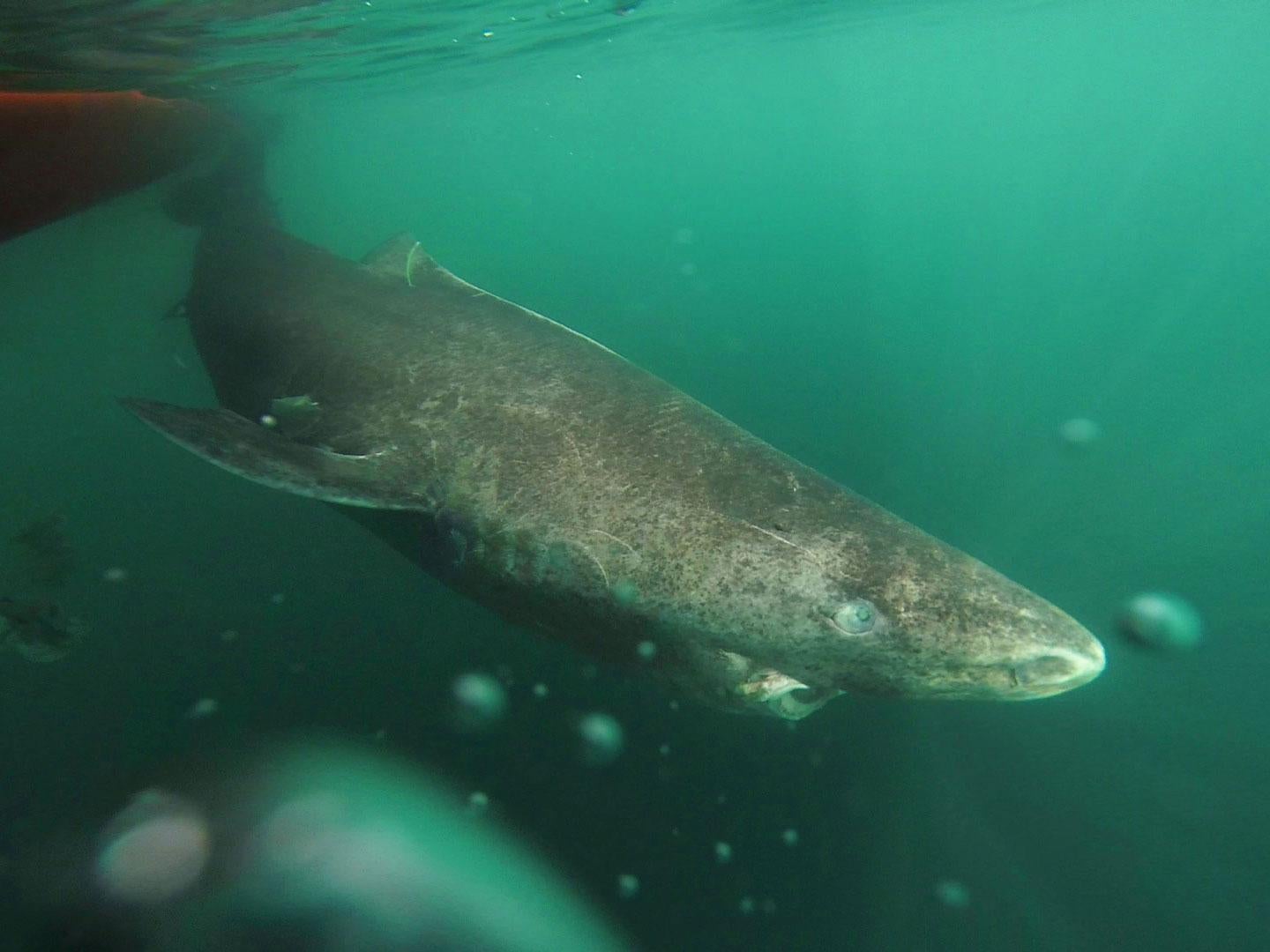This shark may have been alive in the time of Shakespeare – and fishermen just killed it
Greenland shark could have been born up to 512 years ago and is the oldest vertebrate known to have ever lived

Your support helps us to tell the story
From reproductive rights to climate change to Big Tech, The Independent is on the ground when the story is developing. Whether it's investigating the financials of Elon Musk's pro-Trump PAC or producing our latest documentary, 'The A Word', which shines a light on the American women fighting for reproductive rights, we know how important it is to parse out the facts from the messaging.
At such a critical moment in US history, we need reporters on the ground. Your donation allows us to keep sending journalists to speak to both sides of the story.
The Independent is trusted by Americans across the entire political spectrum. And unlike many other quality news outlets, we choose not to lock Americans out of our reporting and analysis with paywalls. We believe quality journalism should be available to everyone, paid for by those who can afford it.
Your support makes all the difference.Not long after Christopher Columbus sailed across the Atlantic and a few years before Henry the VIII became king of England, a very special shark just might have been born in the icy waters of the Arctic.
According to a new study, this Greenland shark was alive until recently when it was accidentally caught in a fishing boat’s net after, possibly, a life-span of more than half a millennium.
The precise age of the five-metre-long female is rather uncertain. Researchers estimated it was born about 392 years ago – in 1624, when the Palace of Versailles was first built as a hunting lodge – but they added it could be anything between 272 and 512 years. This means it potentially lived through the time of Shakespeare, the English Civil War, the Industrial Revolution and the arrival of the Nuclear Age. The latter two events appear to have made their mark on the sharks.
What is clear is that the Greenland shark now holds the record for the oldest known vertebrate animal on the planet by some margin. It might even have an outside chance of being the oldest animal ever found with a clam called the ocean quahog currently holding that record at 507 years.
Writing in the journal Science, the researcher said: “Our results demonstrate that the Greenland shark is among the longest-lived vertebrate species, surpassing even the bowhead whale (Balaena mysticetus, estimated longevity of 211 years).
“The life expectancy of the Greenland shark is exceeded only by that of the ocean quahog (Arctica islandica, 507 years).
“Our estimates strongly suggest a precautionary approach to the conservation of the Greenland shark, because they are common bycatch in arctic and subarctic groundfish fisheries and have been subjected to several recent commercial exploitation initiatives.”
According to the International Union for Conservation of Nature’s Red List of Threatened Species, the Greenland shark is classed as "near-threatened", although its current population is unknown. It was once hunted for its liver oil with 32,000 a year killed in the 1910s in Greenland alone.
The researchers, led by Julius Nielsen, of Copenhagen University, radiocarbon-dated the eye lens nuclei of 28 female Greenland sharks.
The sharks, ranging in size from 81cm to 502cm, were all bycatch caught by fishing boats.
They estimated that the sharks have a prolonged period of "childhood", only gaining sexual maturity at the age of about 156 – plus or minus 22 years.
Some of the sharks bore signs of humans’ impact on the planet – such as the radiocarbon signature left by open-air nuclear bomb tests in the mid-20th century and possibly a chemical time marker caused by emissions of fossil fuels, which has been detected in the marine food chain since the early 20th century.
Join our commenting forum
Join thought-provoking conversations, follow other Independent readers and see their replies
Comments